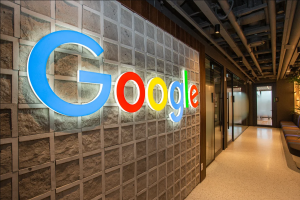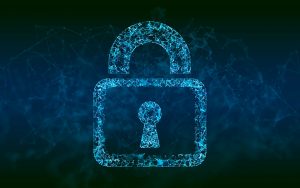Update: Appeals of the FCC Net Neutrality Rule
The appeals of the FCC’s Net Neutrality rule continued to run their courses this week. [For background, see Which Court Gets to Hear the Net Neutrality Appeal? (Jan. 21) & More on the Verizon Appeal of the Net Neutrality Regulation (Jan. 24).]
On Jan. 10, even before the rule was published (which still has not happened) the Free Press sent a letter to the FCC protesting that MetroPCS Communications is offering data plans that discriminate among content providers and violate Net Neutrality principles.![]()
Verizon appealed on Jan. 20, near the end of the 30 days allowable under its theory of the case. On Jan. 24 or 25, MetroPCS, possibly alarmed by the Free Press letter, appealed, also in the DC Circuit, and making the same claim as Verizon – that the rule affects licenses, that exclusive jurisdiction on appeal lies in the DC Circuit under 47 USC §402(b). [NB: The MetroPCS appeal is sort of stealth mode; the company’s website contains no reference to it, and its terms must be deduced from the FCC response.]
The FCC filed its responses to both appeals on Jan. 28, asking that they be dismissed for prematurity. However, the agency’s view of which statute applies — §401(a) (appeal to any circuit) or §401(b)(appeal to DC exclusively) is left open. The argument in the brief is that FCC rules governing time of “public notice” control, and that this time is defined as the date of publication in the Federal Register. But this leaves available to Verizon and to MetroPCS the argument that once the Fed Reg publication takes place, two clocks start to run – a 30-day clock under §401(b), with exclusive jurisdiction in DC, for parties with affected licenses, and a 60-day clock under §402(a), with jurisdiction in any circuit, for anyone else.
Verizon and MetroPCS would be perfectly happy with dismissal on the terms requested by the FCC, since they could still argue for exclusive jurisdiction in the DC Circuit. MetroPCS might be particularly happy. By my calendar, the rule became publicly available on Dec. 24, so the 30-day calendar ran out on Jan. 24, and the news reports read as if MetroPCS did not file until the next morning. (Not necessarily, though, since the reporters could have been reacting to a statement made early the day after the filing.) The FCC did not argue this, but then it wouldn’t, given its position that Dec. 24 is irrelevant. But it still could, since jurisdictional requirements are absolute.
The DC Circuit has not acted on the basic appeal, but on Feb. 2 it rejected Verizon’s motion that the case be heard by the same panel that overruled the FCC in Comcast and denied the agency’s power to use “ancillary authority” to impose net neutrality requirements via litigation. This denial was pretty much expected.
So what happens now? Courts encourage agencies to define precisely when the clock on time-for-appeal starts, so the uncertainties that triggered the timing of the Verizon and MetroPCS filings are undesirable anomalies. The proper course is for the DC Circuit to agree with the FCC and dismiss the appeals as premature, but this will settle none of the fundamental issues.
The next step is for the FCC to publish the rule in the Fed Reg. As noted above, this will then start two clocks running, under §401(b) and §401(a). It will also start a third clock for the judicial lottery. As described in Which Court Gets to Hear the Net Neutrality Appeal? (Jan. 21), when appeals from a rule are filed in more than one circuit, those that are filed within 10 days go in the equivalent of a judicial hat and the case is assigned randomly.
So the situation will be that Verizon/MetroPCS will immediately file in the DC Circuit under §401(b). Others will file in circuits of their choice. Verizon and MetroPCS will probably also file under §401(a), just to be sure that the DC Circuit is in the hat, should that be relevant. All of these appeals will be filed within 10 days, so the difference between the 30- and 60-day clocks will become irrelevant, except, that anyone who files within these time limits will be allowed to participate in the appeal; the delay simply means that their favored circuit does not get to be in the hat.![]()
At that point, the question will be whether the DC Circuit decides the §401(b) issue first or the lottery is held under §401(a), with the winning court then deciding the §401(b) issue. Or is it an issue for the Judicial Panel on Multidistrict Litigation, despite the fact that the terms of the statute governing multiple appeals do not quite fit? And even if §401(b) applies, should the appeals from other parties under §402(a) be transferred to DC, or is it possible to have multiple appeals going on, with the 401(b) litigation circumscribed to licensing issues?
The FCC has some control over the issue in that it can pick a court in which to file the record, and force other parties to react to this, but it is not entirely clear just how broad this power is.
There may also be some case law on all this somewhere, and a lot of lawyers are being paid a lot of money to look for it, but for the rest of us all of this procedural litigation is an annoyance because it prolongs uncertainty. On the other hand, I sympathize with Verizon’s determination to have it heard in DC, not because of the Comcast case, but because telecom/FCC law is hideously complicated, and the DC judges hear so much of that they have a running start. In other circuits, it could be like putting a rookie quarterback into the Superbowl.
I am so happy I could clear all this up for you. It is not absolutely necessary to be sort of an idiot savant to be an administrative lawyer, but it helps.
[Cross-posted at Digital Society]
A message from John Furrier, co-founder of SiliconANGLE:
Your vote of support is important to us and it helps us keep the content FREE.
One click below supports our mission to provide free, deep, and relevant content.
Join our community on YouTube
Join the community that includes more than 15,000 #CubeAlumni experts, including Amazon.com CEO Andy Jassy, Dell Technologies founder and CEO Michael Dell, Intel CEO Pat Gelsinger, and many more luminaries and experts.
THANK YOU













